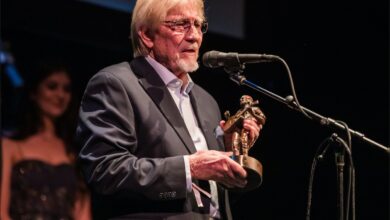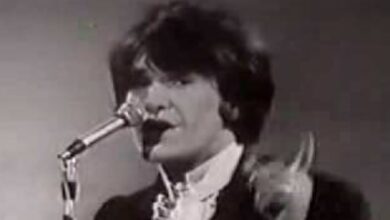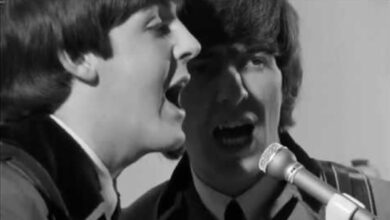Blake Shelton’s rare, emotional performance of a long-retired hit moved the crowd to tears
Released in 2003 on his album The Dreamer, “The Baby” quickly became renowned for its heart-wrenching narrative and delicate portrayal of a son’s relationship with his mother. At a time when country music was embracing both traditional storytelling and modern production, the song stood out for its raw honesty and emotional weight. Its ability to connect with listeners on a deeply personal level soon earned it a reputation as one of Blake Shelton’s most touching and groundbreaking tracks, resonating far beyond the typical country audience.
Blake Shelton’s ascent in the country music realm is a story of relentless dedication and unmistakable charm. Hailing from Oklahoma, he emerged on the scene with a distinctive vocal style and a blend of traditional country roots and modern sensibilities. Over the years, Shelton has released a string of hits—ranging from “Ol’ Red” to “God’s Country” and “Some Beach”—that have not only dominated the charts but also cemented his status as a mainstay in contemporary country music. His authentic stage presence and relatable storytelling have always set him apart from his peers.
The inspiration behind “The Baby” is deeply intertwined with personal reflection and heartfelt emotion. Crafted to explore the unique bond between a son and his mother, the song was born out of moments of introspection and a desire to capture the bittersweet nuances of familial love. Shelton has revealed that the song’s overwhelming emotional impact once led him to cease performing it live, as the profound reactions from audiences—ranging from tears to moments of quiet contemplation—underscored its heavy thematic content.
The recording of “The Baby” was a carefully orchestrated affair that brought together gentle instrumentation and intimate vocal delivery. Produced for The Dreamer, the track features soft acoustic arrangements complemented by subtle background harmonies that enhance its reflective mood. Shelton’s vocal performance is marked by a tenderness and vulnerability that invite listeners to experience the story firsthand, making the production both understated and powerfully evocative.
Upon its initial release, “The Baby” garnered considerable acclaim from both critics and fans alike. Its emotional depth and sincere narrative resonated with a wide audience, allowing the track to enjoy a lasting presence on radio and within country music playlists. Although not a chart-topping single in the conventional sense, its enduring popularity and the personal connections it fostered among listeners elevated its status, marking it as a beloved piece of Shelton’s musical repertoire and an influential work in his career.
Culturally, the impact of “The Baby” extends well beyond its musical composition. The song challenged the conventions of live performance by evoking such strong emotional responses that Shelton felt compelled to retire it from his setlist for several years. Its capacity to stir deep feelings among diverse audiences underscored the transformative power of country music, proving that the genre can effectively address intimate, life-changing moments. This emotional legacy has, in turn, influenced perceptions of what constitutes a memorable live performance.
The decision to eventually bring “The Baby” back to his live shows marked a significant turning point in Shelton’s career trajectory. Reviving the song during his Back To The Honky Tonk Tour in Hershey, PA, Shelton reconnected with fans in a way that transcended mere entertainment. By reintroducing a track once set aside for its overwhelming emotional intensity, he not only reaffirmed his commitment to authentic musical expression but also expanded his appeal by daring to revisit deeply personal material that had long resonated with his audience.
“The Baby” has also had a notable influence on the country genre as a whole, inspiring both peers and emerging artists to explore themes of vulnerability and familial bonds in their own work. Its success in evoking genuine emotional responses set a benchmark for live performances, encouraging other musicians to embrace songs that might challenge their audiences in unexpected ways. This ripple effect has contributed to a broader trend in country music, where authenticity and personal storytelling are increasingly celebrated.
While “The Baby” has rarely been officially covered by other major artists, its profound impact has spurred numerous impromptu renditions and acoustic reinterpretations by fellow musicians and fans alike. These live covers, often shared on social media and at local venues, testify to the song’s enduring ability to move listeners. Each rendition, whether a stripped-back acoustic version or a full-band performance, highlights the timeless quality of its narrative and the universal nature of its emotional appeal.
Shelton’s revival of “The Baby” coincided with a period of personal and professional reflection, adding another layer to its significance. At a time when the artist was navigating the complexities of a long and storied career, reintroducing this track was both a nod to his past and a bold statement about the unyielding power of genuine musical connection. Fans shared heartfelt testimonies about the song’s impact, with one remarking that it served as a cherished reminder of maternal love—a sentiment that resonated deeply with those who had experienced similar losses.
Over the years, “The Baby” has maintained a lasting legacy within the country music canon. Its frequent airplay on classic country stations and its inclusion in retrospective compilations underscore its status as a touchstone of emotional storytelling. The song’s ability to evoke nostalgia and provoke introspection has ensured that it remains a memorable highlight of Shelton’s career, cherished by fans as much for its musical beauty as for its capacity to encapsulate the human experience.
The lasting influence of “The Baby” on future musical developments is evident in the way it has reshaped expectations for live country performances. By daring to present a song that confronts deep-seated emotions head-on, Shelton set a precedent for incorporating vulnerability into mainstream setlists. This approach has encouraged a new generation of artists to blend commercial success with heartfelt storytelling, bridging the gap between polished production and raw, unfiltered emotion.
In many respects, “The Baby” represents the convergence of art and life—a track that not only charted its own path in the music industry but also transformed how artists connect with their audiences. Its revival on stage is a reminder of the transformative potential of music to heal, inspire, and forge bonds across generations. The performance resonated so powerfully that fans couldn’t help but recall personal memories, deepening their appreciation for the song’s intricate narrative and Shelton’s emotive delivery.
Blake Shelton’s journey with “The Baby” encapsulates the essence of what makes country music such a potent medium for storytelling. His decision to bring back a song once deemed too heavy to perform illustrates the enduring strength of artistic expression, even in the face of emotional vulnerability. The track’s revival has not only rekindled fan admiration but also reaffirmed Shelton’s reputation as an artist who is unafraid to let his music mirror life’s most profound truths.
Ultimately, the legacy of “The Baby” lies in its remarkable ability to unite audiences through shared experiences of loss, love, and remembrance. Its return to the stage has rekindled memories for longtime fans and introduced a new generation to the raw power of country music. In doing so, Blake Shelton has demonstrated that the emotional impact of a song can transcend time, leaving an indelible mark on both the artist’s career and the cultural landscape of country music.



